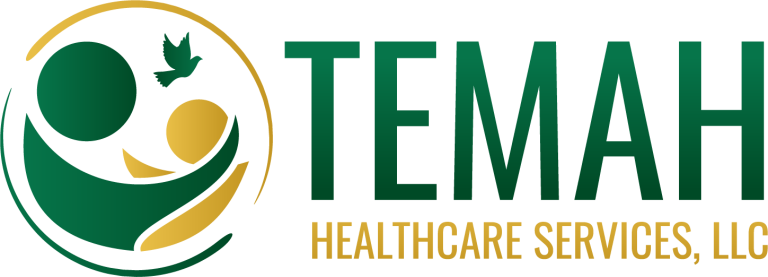
Intensive Outpatient
Improving problem-solving skills
At Temah Healthcare Services, LLC, we are committed to empowering individuals on their path to wellness through our Intensive Outpatient Programs (IOP). These programs are tailored to address a diverse range of challenges, including addiction, depression, eating disorders, and other behavioral health issues. We emphasize a holistic approach, aiming to enhance communication skills, social interaction, employment readiness, and overall well-being. Our ultimate goal is to foster abstinence, promote positive behavioral changes, and support individuals in building a healthier, more fulfilling life.
Core Features of Our Intensive Outpatient Programs
Our IOPs provide a structured environment where participants can engage in meaningful therapy and recovery work without disrupting their daily lives. These programs typically include:
Group Therapy: Facilitated by experienced therapists, group sessions encourage sharing experiences, building connections, and fostering mutual support.
Individual Counseling: Personalized one-on-one sessions help individuals identify personal goals, address challenges, and develop coping strategies.
Employment Assistance: Guidance and support in securing and maintaining employment as part of recovery and reintegration.
Medication Management: Comprehensive monitoring and adjustment of prescribed medications to ensure effectiveness and safety.
Case Management: Coordination of care to ensure all aspects of an individual's treatment and recovery are addressed efficiently.
Introduction to Support Groups: Connecting individuals with community-based groups that provide ongoing encouragement and accountability.
Psychiatric Screening: Thorough evaluations to determine any underlying mental health conditions and provide appropriate treatment.
Vocational Training: Training opportunities to help individuals develop skills that improve employability and self-sufficiency.
Incorporating Recovery Services for Holistic Healing
In addition to these intensive services, our programs integrate recovery-focused care to support long-term healing and prevent relapse. This includes:
Relapse Prevention Planning: Equipping individuals with tools and strategies to recognize triggers, manage cravings, and maintain sobriety.
Family Education and Counseling: Involving loved ones in the recovery process to strengthen support systems and improve relationships.
Life Skills Development: Teaching essential skills such as stress management, time management, and financial planning to ensure stability.
Sober Living Support: Guidance in creating an environment conducive to recovery, whether through housing or lifestyle changes.
Holistic Therapies: Offering activities such as mindfulness practices, yoga, and art therapy to support emotional and spiritual healing.
Aftercare and Follow-Up Services: Continuing support through follow-up sessions, peer groups, and recovery coaching to sustain progress.
What sets Temah Healthcare Services?
apart is our unwavering dedication to delivering exceptional care in an environment that prioritizes comfort, safety, and individual needs. We understand that recovery is not just about overcoming challenges—it's about rebuilding lives with confidence, hope, and resilience.
Choosing Temah means entrusting your journey to a team that values every step of your progress. Together, we strive to empower individuals and their families, ensuring a brighter and healthier future.
Why Choose Temah Healthcare?
Comprehensive & Integrated Care
Personalized & Convenient Support
Experienced & Compassionate Professionals
Hear From Our Community: Read Our Google Reviews
GOODTrustindex verifies that the original source of the review is Google. Temah is a wonderful and welcoming place. The help and care i receive here is top tier.Posted onTrustindex verifies that the original source of the review is Google. First of all I would like to thank God for bringing me too Temah Treatment Facility, because I have been to a few different Treatment Centers and none of them treated a you like a person, instead more like a number, but not Temah from day one (1) They treat you like a human being that's the difference that makes Temah Great; Thank God for Mr and Mrs Williams 😃😁Posted onTrustindex verifies that the original source of the review is Google. An awesome program thank you guys for everything. I’ve changed a lot from when I first came thanks too Temah 🥰Posted onTrustindex verifies that the original source of the review is Google. 10 out 10….Posted onTrustindex verifies that the original source of the review is Google. This is a good program,that cares about your mental health.They help you to pursue your goals,to be stable and be great.This is a good learning experience with my substance abuse,groups,therapy that is individual therapy.This is such a great programPosted onTrustindex verifies that the original source of the review is Google. Temah Healthcare is more then another treatment center, when I came in to the " Temah Family" I knew I had finally found a home away from home. A safe place with with staff that truly treat you like family. Somewhere I could fight my demons with a staff not only with the power of knowledge but with the power of prayer. How could I possibly fail if I had the armor of my higher power and a superior staff to help me fight the battles I knew I was about to face. I came into treatment January 19,2023 with my eldest son, Andrew. We made a plan to get clean and sober so we could get off the streets and regain custody of his children. Satan had other plans 23 days into our journey my son left treatment . Andy was suffering from alcohol withdrawal along with an array of drug withdrawal symptoms and horrific hallucinations and deadly withdrawals from the medication that was used to put him in a medically induced coma that he had just come out of and on Feb 13th I was pulled out of a group meeting and told to call home immediately. I knew , as a mother I felt it I knew my baby was gone. At 7 am Feb 13,2023. Andy was still intoxicated from the night before and attempted to cross a very busy highway. He made it halfway, then he tripped into oncoming traffic and was struck first by a mini van then a huge dump truck hit him doing 60 mph. My baby was identified by his boots and his bookbag. If it wasn't for Temah Healthcare, Mr. And Mrs. Williams and the entire Temah family, I can honestly say I would NOT be here today. I cry everyday missing my son. But, I have to complete the goals Andy and I set out to do. I have 2 sons, Zachary and Matthew Here who lost a brother, too. My family needs me. Andy's children needs me. If you are looking for a place to get your life back, Temah Healthcare is the place for you.Posted onTrustindex verifies that the original source of the review is Google. Temah Healthcare Services is by far the best experience I’ve had in my path of recovery. They offer the best care and understanding a very stable and supportive community. I would recommend Temah Healthcare highly to anyone whom seeks a professional and supportive recovery because they not only provide recovery, but mental health, clinical healthcare and helps you to utilize coping skills.The staff are very respectful and caring. I’ve learned so much in my little time with them. In conclusion it’s an all around great community and I love it here.Posted onTrustindex verifies that the original source of the review is Google. Great program, awesome staff that helps you with whatever you have need of. Spot less Clean apartments and houses. 💯% satisfactionPosted onTrustindex verifies that the original source of the review is Google. Temah help me to face reality.
Fee Calculator
Please enter your family size and income to see your estimated fees.
| Service Description | Your Estimated Fee |
|---|
*Based on the 2023 Federal Poverty Guidelines for the 48 contiguous states and the District of Columbia. Please note that there are separate guidelines for Alaska and Hawaii, and that the thresholds would differ for sites in those two states. Sites in Puerto Rico and other outlying jurisdictions would use the above guidelines.
